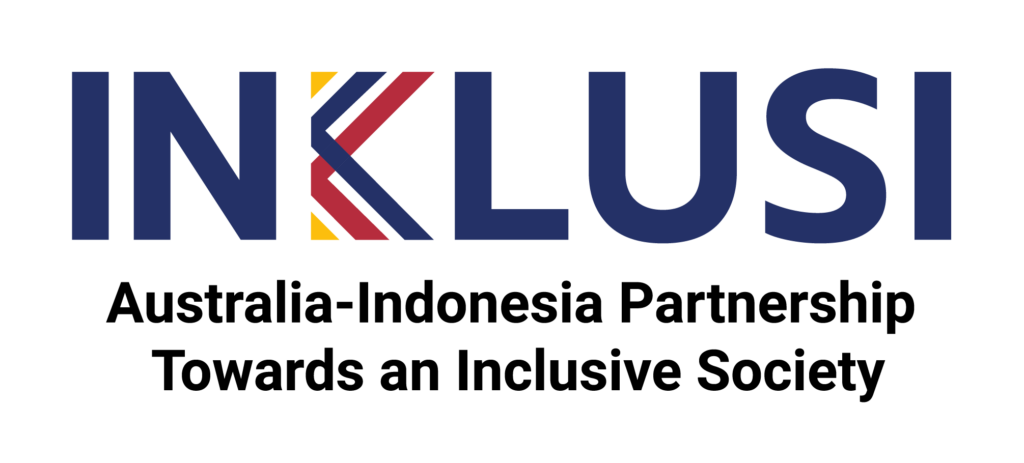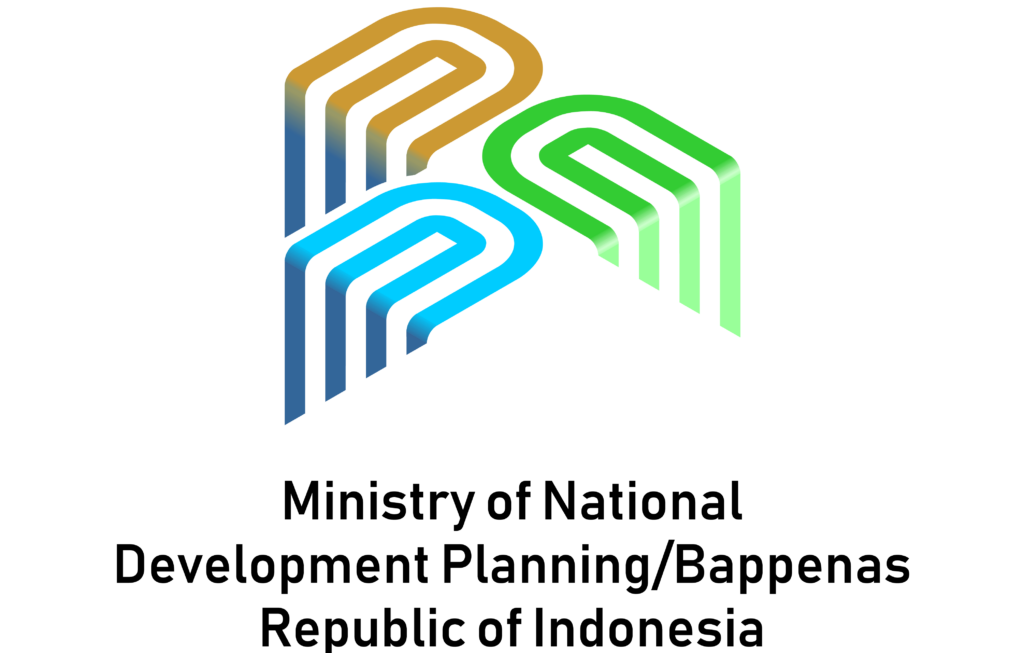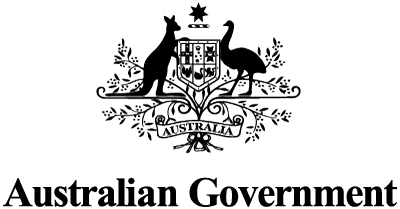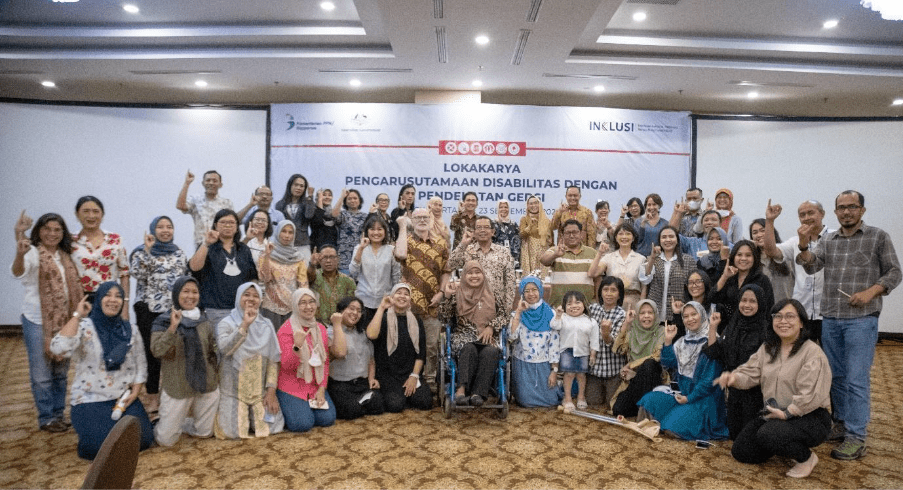To celebrate National Disability Day in 2022, the Australia-Indonesia Partnership Towards an Inclusive Society (INKLUSI) hosted a workshop in Yogyakarta on ‘Disability Mainstreaming with a Gender, Disability, and Social Inclusion (GEDSI) Approach’.
The four-day workshop was attended by representatives of eight INKLUSI partners (AISYIYAH, BaKTI, KAPAL Perempuan, Kemitraan, Migrant CARE, PEKKA, PKBI, SIGAB). Speakers included experts and practitioners from several organisations, including the Ministry of National Development Planning of the Republic of Indonesia (BAPPENAS), local government agencies, the private sector and civil society.
Respect, protection and rights fulfillment for people with disabilities have gained global attention, particularly since the issuance of the United Nations Resolution A/RES/61/106 in 2006 on the Convention on the Rights of Persons with Disabilities (CRPD). The UN Resolution brought a paradigm shift and new approaches to recognising and upholding the rights of people with disabilities.
Disability was once considered a disadvantage or weakness, and approaches leaned heavily on medical perspectives – as reflected in the once common term, ‘handicapped’. However, the Indonesian Law No. 8/2016 on Persons with Disability helped shift the paradigm by stating that the term ‘persons with disability’ should be applied to anyone who has physical, intellectual, mental, and/or sensory limitations over a long period of time and, who, in their interaction with their surroundings, experiences barriers and difficulties in participating fully and effectively with other members of society.
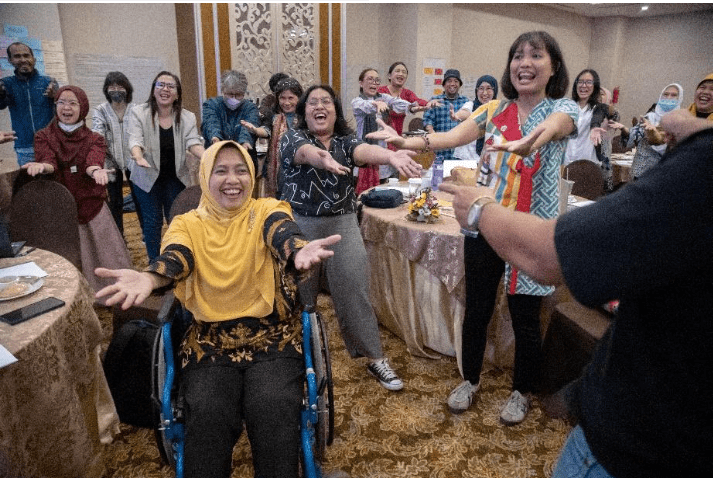
The challenges faced by people with disabilities are now more commonly viewed from a social and human rights perspective – disability represents human diversity, while the barriers faced by people with disabilities are due to the inadequate conditions of their surroundings. Therefore, the fulfillment of the rights of people with disability is a fulfillment of human rights.
The importance of disability mainstreaming with a GEDSI approach
INKLUSI strives to uphold the mantra that for development to be inclusive, ‘No one should be left behind’. INKLUSI also strives to implement a GEDSI approach that considers the input and needs of marginalised groups, including people with disabilities. Therefore, disability issues must be aligned with the GEDSI approach across every activity that INKLUSI implements.
The workshop aimed to increase understanding, knowledge and practical skills so that participants could align disability issues with the GEDSI approach, and intersectionality, when they returned to their organisations. The workshop focused on: understanding the concept and variety of disabilities; identifying barriers, stigma and layered discrimination against people with disabilities; dialogue regarding approaches and strategies to build relationships; and managing disability issues in various programs, including increasing the protection and fulfillment of the rights of people with disabilities within INKLUSI.
Sharing experiences and learning together
Workshop activities were carried out in an inclusive and participatory manner to provide opportunities for participants, facilitators to share materials, opinions, ideas, inputs and experiences regarding good practice and learning in relation to disability inclusiveness in their respective fields.
This workshop was facilitated by SIGAB, an INKLUSI partner that focuses on the rights of persons with disabilities. During the opening session, one of the facilitators, Ninik Heca, who is a person with a disability, shared an experience she had with non-disabled friends.
“When I was at the beach with my friends, suddenly a wave came. My friends tried to save me by taking my crutches and pulling me to a safe place. But my crutches are a tool that help me walk. The intention was good, but (they) didn’t understand what they were doing by taking my crutches away,” Ninik explained.
Ninik’s experience is an example of how people have good intentions when assisting or interacting with people with disabilities, but due to a lack of understanding, mistakes regarding their needs can be made.
“That’s why a disability mainstreaming workshop is important. So that you aren’t confused or concerned, and you can avoid not helping or doing something wrong. So that you understand the needs of others. Because your good intention has to be followed with knowledge,” Nica added.
Participants took part in a series of activities, such as presentations, talk shows, simulations and practice, and field trips to build understanding, knowledge and practical skills.
Workshop topics included: Understanding Ableism; Disabled Activism in Indonesia; Types and Principles of Disability; The Ethics in Interacting and Accessibility; ‘Regulation of Law on the Rights of People with Disability; Psychiatric Emergency Handling Simulation; and GEDSI and Intersectional Approach Strategy.
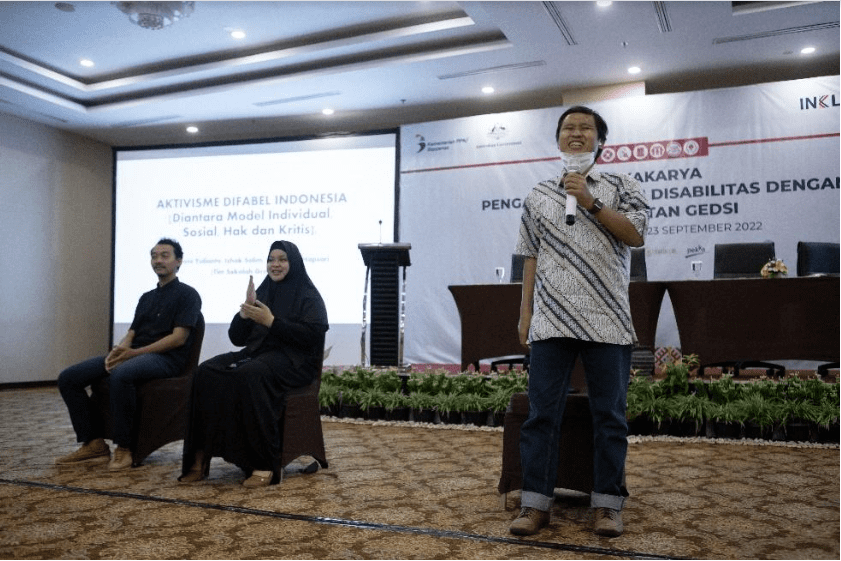
Ableism is a discriminatory perspective or prejudice which tends to consider people with disability as inferior. Participants also learned about the correct names and terms related to disability issues.
Workshop participants also took part in simulations designed to demonstrate the correct way to interact with people with different disabilities, such as pushing a wheelchair, guiding a blind person, and learning basic sign language to interact with the deaf. All of these provided participants with a better understanding of the accessibility challenges encountered by persons with disability.
“Since the establishment of the Inclusive Village, I started to go out, hang out with friends, even the non-disabled ones and join activities with disabled friends every month, such as empowerment activities, paralegal and Disaster Ready Disabled (Difabel Siaga Bencana) trainings. I can now motivate my friends and myself,” said Dian Hastiwi, one of the members of the disabled group in Inclusive Village of Jatirejo.
Throughout the discussions, the participants learnt good practices related to participation and role modelling, access and services, decision-making, and the benefits of inclusive village development programs, which involve disabled and non-disabled people.
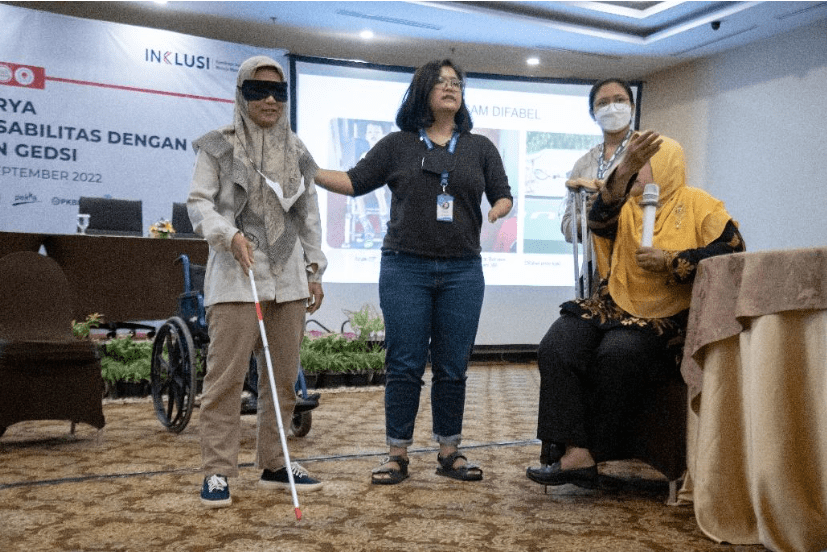
Talkshow: Disability Inclusive Development in Indonesia
The workshop included a talk show focused on ‘Disability Inclusive Development in Indonesia’, with speakers from the National Action Plan for Persons with Disabilities (Rencana Aksi Nasional Penyandang Disabilitas/RAN-PD), BAPPENAS, the National Commission for Disabilities (Komisi Nasional Disabilitas/KND), the private sector and communities or organisations of people with disabilities. The talk show aimed to improve understandings of Indonesia’s policies, strategies, in relation to disability, and the contribution of the private sector. Good practices in expanding participation and access were also discussed. It also highlighted the benefits of an inclusive public service that provides protection for, and reinforces the rights of, people with disabilities.
Dina Noach, Special Staff to the Governor of East Nusa Tenggara, shared her role in helping the local government with inclusive development programs for persons with disability.

“This is the reason I’m appointed to be an adviser, to help the government in their development planning and improve access for persons with disability… This could be a motivation for other provinces to also see the capabilities of disabled people,” said Dina.
Other good practices were shared by Alfamart, a well-known private retail business in Indonesia. Alfamart has been providing work opportunities for people with disabilities since 2016 and around 900 people with disabilities have been recruited to different stores, warehouses and branch offices throughout the country.
Another good story was shared by KEBAYA (Keluarga Besar Waria Yogyakarta/Yogyakarta Transgender Family), which mentors trans women with disabilities. Sepa, a deaf trans woman, shared how she went from being shy to becoming more confident. She hopes that fellow transgender people with a disability will have access to better jobs in the future.
“I hope, in the future, there will be fewer deaf trans women working in the non-formal sector on the street. My friends can have access to better jobs,” she said.
Head of the National Commission for Disabilities (KND), Dante Rigamlia, also shared her experience in implementing activities and helping the government establish inclusive development programs. Dante, who has a hearing impairment, demonstrated that not every disability is visible. Many types of disabilities are not widely known and, therefore, some inclusive development programs have not targeted disability comprehensively.
“Policies need to be based on human rights. Stigma starts from us, let’s eradicate this stigma,” said Dante Rigmalia in her closing remark.

Awareness is a shared responsibility
Workshop participants gained an understanding of the types of disabilities, the needs of people with disability, the stigma, discrimination and challenges they face, and how to interact with them appropriately.
“Even though I’ve been good friends with people with disabilities, I still need to learn more. I still need to know a lot of things – how can I treat my friends with disabilities better, what are the correct terms to use, and I think this is a very good learning process,” said Merlyn Sopjan from the Family Planning Association (Perkumpulan Keluarga Berencana Indonesia/PKBI).
In the last session of the workshop, participants were asked to draw some conclusions, and draft a strategy and follow-up plan for implementing disability-inclusive practices in the programs they are involved in, and for the policies of their organisations.
“Everyone who works with us must have the same awareness because awareness is our shared responsibility,” said Joni Yulianto from SIGAB.
